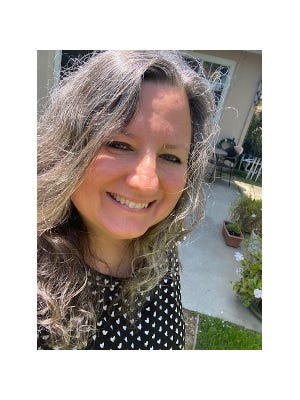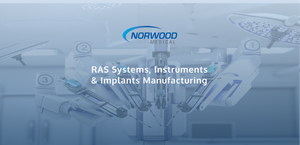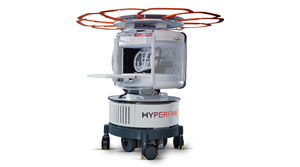July 1, 1996
Medical Device & Diagnostic Industry Magazine | MDDI Article Index
Originally published July, 1996
Packaging
Many medical device manufacturers are bringing their packaging processes in-house, according to a recent study by Frost & Sullivan (Mountain View, CA), a health-care market research firm. The report suggests that nationwide pressures to contain health-care costs in general are also having an impact on the shape of the market for medical device packaging and packaging equipment.
According to the report, U.S. Medical and Pharmaceutical Packaging Markets, an increasing number of device companies are purchasing rollstock and installing their own form, fill, and seal (FFS) machinery, instead of buying preformed bags or pouches. The report notes that rollstock is the fastest-growing segment in medical packaging.
The Frost & Sullivan study looks at key types of packaging used in the medical device and pharmaceutical industries. It predicts that use of rollstock, which totaled less than 10% of the market in 1991, will increase to more than 17% by the year 2001. Meanwhile, the sale of preformed pouches and bags, which respectively accounted for 4.6 and 4.0% of the market in 1991, will increase more slowly to 5.6 and 4.7%, respectively, by 2001.
Bringing packaging in-house enables manufacturers to eliminate the expense of using an outside contract packager (converter) or buying ready-made packages. Doing so, however, requires a significant capital investment, and companies must still maintain easy access to expertise in package design and machine operation.
According to one packaging consultant, "about 50% of all packaging processes involve FFS machinery. We expect that to increase to 65% of all device packaging over the next five years."
Because the cost of such equipment often ranges from $100,000 to $250,000 per machine, purchasing it is only economical for firms producing long runs of thousands of packages. "The purchase of FFS equipment depends on economics," says Jerry Bennish, business director at Rexam Medical Packaging (Vernon Hills, IL), a supplier of rollstock and preformed packages. "If the volume of packaging is significant enough to justify the equipment and conversion costs, FFS is a viable option."
To Ray Johnson, group president of Doyen Medipharm, Inc. (Morris Plains, NJ), a significant volume is 250,000 pouches a month. "Virtually all of our machines are being sold to medical manufacturers who are packaging their own devices," he says.
Employing FFS machines saves manufacturers the cost of paying someone else to do the work. "The real savings to manufacturers comes in doing the conversion of rollstock into pouches themselves, reducing labor and increasing productivity," says Donald Barcan, president of Donbar Industries, Inc. (Long Valley, NJ), a medical package engineering consulting firm. According to Johnson, manufacturers who buy rollstock can often avoid the markup on material they would usually pay when buying premade pouches or bags from converters or contract packagers.
Another way FFS machinery can save money is through the reduction of labor costs. For instance, some firms purchase premade pouches from converters and then set up an in-house assembly line in which employees place devices in the pouches and then seal them using tabletop or in-line machines. "FFS units eliminate the need to manually stuff devices into pouches--they form the pouches around the devices and seal them automatically in one process," Johnson says. "The switch from manual to automatic packaging can reduce labor costs up to 5080%."
Manufacturers who purchase premade pouches can face the inventory nightmare of stocking too few or too many different packages. When the demand for particular products increases or decreases, these firms must either suffer the expense of unused packages or delay orders until the out-of-stock packages can be obtained from the supplier.
Although FFS machines are usually designed to produce only one type of package (e.g., a machine that produces blister packages cannot create pouches and bags), some permit a certain amount of flexibility in varying package shape and size. Maintaining in-house production of packages enables companies to produce packaging that is tailored to fit the dimensions of specific devices, as needed.
In addition to justifying the expense of purchasing FFS equipment, manufacturers must ensure that the right expertise is available to design the packages that the equipment will be used to produce. Consultants often assist companies with package design. Companies such as Rexam maintain a staff of field engineers to assist companies with in-house packaging issues.
"Manufacturers of FFS equipment usually design the packages to be produced on their machines," Barcan explains. "Consultants are called in after the machine is running to either redesign the packages or to suggest different types of materials as part of a cost-reduction program."
Despite the gradual shift toward performing more packaging processes in-house, Barcan says that manufacturers are still using contract packagers to package high-profile items, such as surgical procedure trays and urine-collection kits. "In-house packaging, however, is a viable solution for companies that produce both low- and high-profile devices and that are seeking to reduce their out-the-door packaging costs."
To obtain a copy of U.S. Medical and Pharmaceutical Packaging Markets, contact Frost & Sullivan at 415/961-9000; fax 415/961-5042.
--Daphne Allen
About the Author(s)
You May Also Like




